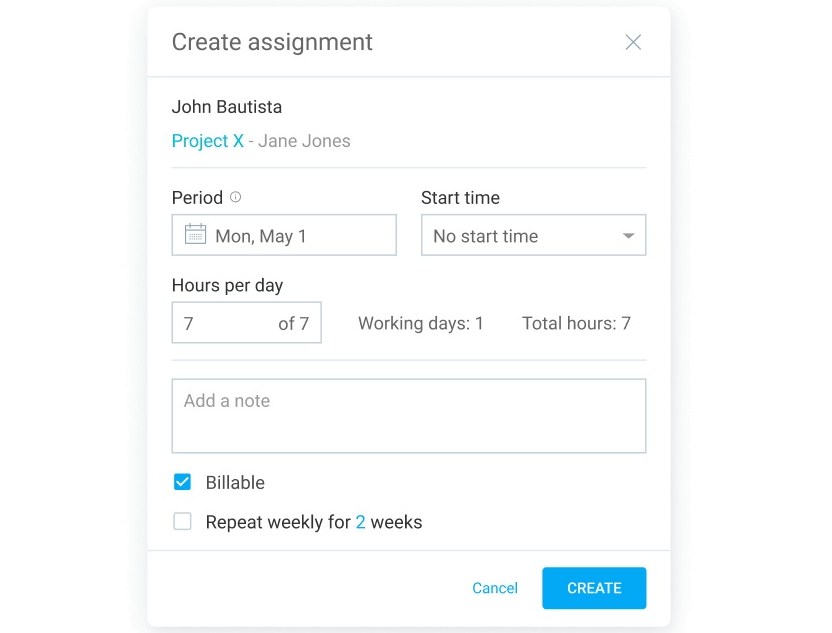Gone are the days when people could organize their time the way it suits them.
We’re constantly exposed to well-intentioned advice, such as:
- Getting up early,
- Reading one book a week,
- Listening to podcasts every day, and
- Becoming the best version of ourselves.
The result?
People often feel like they’re falling short, and even simple acts like taking a midday nap can cause feelings of guilt.
So, join us as we explore the main causes of productivity guilt and efficient strategies to break free from it.

What is productivity guilt?
Productivity guilt is the constant pressure to be productive, often resulting in feelings of shame and dissatisfaction.
To illustrate, a staggering 61 percent of Americans feel guilty when taking time off work.
Mental health therapist Shenella Karunaratne shares that comparison to others has a great impact on productivity guilt:

“You might see someone on social media who claims to have ‘hustled’ enough to create a great, comfortable life for themselves, achieved early retirement, etc, and then start feeling guilty about not being productive or ambitious enough.”
Or, for example, waking up at 7 a.m. might seem too late, as true professionals are supposed to get up at 5 a.m., right?
Even when someone knows they’re more productive later in the day, they can experience productive guilt as they’ve failed to get up earlier.
Dealing with the guilt and shame of getting up ‘late’ and working reasonable hours is the only way to remain efficient and satisfied with the results.
Yet, productivity guilt can sometimes be confused with productive anxiety — a state where a person is most productive under an optimal level of stress.
Of course, achieving this level of stress can be difficult since we can’t control all the external factors, as concluded in the Yerkes-Dodson law.
💡 CLOCKIFY PRO TIP
If unresolved, productivity guilt can eventually turn into toxic productivity. Read all about it:
What are the main causes of productivity guilt?
Productivity guilt psychology is complex.
But understanding its leading causes can get you one step closer to finally enjoying your downtime without shame. So, here are a few causes of productivity guilt:
- Unrealistic societal expectations — constant work has been shown as desirable and normal. At the same time, rest is depicted as shameful and unproductive by toxic work culture and social media.
- Comparing yourself to others — comparison to others is almost always detrimental to mental health as it leads to decreased self-worth, depression, anxiety, and drops in productivity.
- Striving for perfection — internal pressure can be even stronger than external. Undoubtedly, our own unrealistic expectations present one of the main causes of productivity guilt.
If you feel guilty during your time off, pause and recognize the source of the feeling — this is the first step to success.
Best tips to overcome productive quilt
Completing small actions each day is crucial when dealing with guilt and shame.
Let’s take a look at the most efficient ways to break free from productive guilt.
Tip #1: Focus on the task ahead of you
It’s easy to fall into the trap of overthinking, comparing yourself to others, and striving for perfection.
But, when you focus solely on what you’re doing, you improve the quality of work. This approach, known as deep work, goes far beyond merely answering e-mails and phone calls.
Business strategist Jim Christy finds that shifting attention to important assignments is key to lowering the productive guilt in employees.

“When I notice someone feeling productivity guilt, I encourage them to take breaks or refocus on essential tasks that align with our company’s goals. For us, the key is trust: we focus on output rather than micromanaging every moment of time. This approach has helped us stay productive without the guilt weighing down our team.”
💡 CLOCKIFY PRO TIP
Micromanaging isn’t great for business:
Tip #2: Set realistic goals
If you want to complete an important task unreasonably quickly, it’s only normal to experience productivity guilt over drinking coffee or doing something fun.
But, if you split the entire project into manageable chunks, your coffee will start to taste much better.
When you make your goals SMART, progress becomes achievable and productive guilt fades away.
Seasoned technologist and CEO Soumya Mahapatra explains that overworking can often be counterproductive:

“I’ve learned the hard way over many years that giving in to this urge to get more done is almost always a bad idea. While there are definitely times when I need to work a late night or two to get a big project done or secure a major deal, I strive to keep reasonable hours most of the time.”
💡 CLOCKIFY PRO TIP
Defining goals can be rather complex sometimes, so let’s dive deep into the matter with this useful article:
Tip #3: Acknowledge the wins
It’s also easy to fall into the trap of always wanting to achieve more, always struggling to complete yet another task.
The solution? Celebrate the wins.
Since this is easier said than done, here are some practical ideas on how to do it:
- Frame a photo from a successful team building,
- Congratulate yourself on every task you complete,
- Allow yourself to feel satisfied and proud of your former achievements,
- Take screenshots of every praise you receive and read them occasionally, and
- Display prints of notable deals or documents you’re proud of in your office.
The goal is never to forget how much you’ve already done.
Tip #4: Get the most out of productivity techniques
One of the best ways to deal with productivity shame and guilt is to find a productivity technique that works for you.
Here are some of our favorite methods to boost efficiency:
- Apply the Eisenhower matrix to separate the tasks that are truly important and urgent from those that aren’t.
- Use the Eat-the-frog method to do the task you dread most first thing in the morning. See how productive guilt goes away as you triumph over important tasks before noon.
- Implement the Pomodoro technique to focus on a single task for 25 minutes straight, followed by a 5-minute break, using a timer.
- Track time spent on tasks to enhance your organizational skills, which increases productivity.
Experiment with a mix of these methods to find what works best for you. For example, start your work day by identifying what’s your most important task and then focus on it for 25 minutes without any distractions.
💡 CLOCKIFY PRO TIP
But remember, it’s not about the productivity techniques, it’s about meaningful work:
Make work inspiring rather than a source of guilt — with Clockify
Guilt and shame often arise when there are no clear boundaries or reasonable expectations towards work.
Luckily, both can be resolved by scheduling projects.
But how?
To get greater clarity and structure, assign specific projects to employees with clear hours. That way, employees then have defined goals to follow, and their daily workflow becomes easy to manage.
With powerful time tracking software like Clockify, you can:
- Add new projects — and assign employees to each one,
- Create milestones — break projects into manageable chunks to monitor progress, and
- Manage project visibility — minimize anxiety in your team by visually removing future projects.

As your employees track their work hours, you can easily turn that data into reports and analyze it.
Clockify is designed to be user-friendly and straightforward — but you can always rely on free personal guidance from our amazing 24/7 support.
For added peace of mind, Clockify is fully compliant with ISO, GDPR, and SOC2 standards — not to mention customizable across many industries.
Inspire coworkers and employees with clarity, not guilt.


